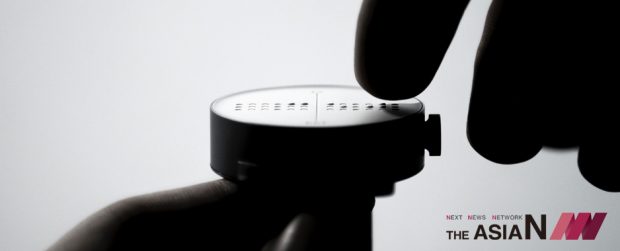From Inconvenience to Innovation
From Inconvenience to Innovation
When you live without disability, you don’t experience the difficulties. But if you are part of the 15% of the global population (World Health Organization) struggling with some form of disability, then sometimes, even daily life can become painful routines. They may be a minority, but they remain members of every country with their own inalienable rights as human beings. While most developed societies now tolerate these individuals with an understanding of their disabilities, helping disabled persons to live quality lives like anyone else is seen as something that will take too much energy. People like the idea of inclusion, but not the inconvenience that comes with it. Meanwhile, two rising Asian startups take a different stance. For the owners, inconvenience was not to be an excuse for a more equal society.
Inclov
Everyone deserves love
It has been said that people with disability are not entitled to a life partner. Particularly in India, home to 26.8 million disabled persons, such people are considered ineligible to marry those without disabilities unless the difference is compensated with a high dowry (Forbes).
Disheartened by the fact that over 40% of the nation’s disabled population never marry, Kalyani Khona and Shankar Srinivasan co-founded matchmaking app Inclov (2016)—the first of its kind to
help people with disability find marriage partners.
Based in Gurugram, India, the Inclov app uses an algorithm that matches users with potential partners based on their level of dependence, cure availability, medications, and therapy for disabilities. This is to allow a safe environment for those with disabilities to share personal information without being discriminated, which can be seen on other dating websites.
To some, Inclov may seem like another level of discrimination, where disabled people are simply separated out to “date themselves”. But for many of those who have used the app, it is a protective
shelter where difficulties are understood and opportunities are created. “There are many dating apps in the market but Inclov is a truly inclusive platform to find love. We even have people without any disabilities,” said CEO Khona in an interview with Forbes. Inclov takes one step further through its Social Spaces program which is an offline meeting space that allows subscribers to meet one other face to face in facilities that are adjusted for those with special needs. Social Spaces was a feature that was added when Inclov staff noticed people that were were sometimes unable to bring the relationship to the next level.
Now, with a year to its history, more than 100 people attended Inclov’s most recent Social Spaces meetup and the startup has helped over 6,000 disabled people meet their spouses.
“After looking for a partner for almost 4 years, I was disappointed at not being able to find anyone of my choice. I came across Inclov and the Inclov Select matchmakers helped me find my partner and I will always be thankful to them” said Inclov user Ramkesh.
Thanks to Inclov, people like Ramkesh are given, just as we are, the hope of love and lifelong partnership despite personal or physical situation.
Dot Incorporation
World’s first braille smart watch
When it comes to accessing information, the blind have only several options: buying expensive tools and materials or simply go without. But when young entrepreneur Kim Ju-yoon saw a blind friend reading a gigantic braille Bible, he was sure there could be a better way. Inspired by that first meeting, Kim went on to creating an alternative to costly (and excessively large or heavy) reading materials and appliances made for blind people. In a world that has become so efficient and smart, he decided it was time for even those with visual impairments to be included.
By 2016, Founder Kim Ju-yoon was able to introduce the world’s first braille smart watch under his company name, Dot. After repeated stages of trial-and-error, the dot watch was released boasting new magnetic technology 1/20th the size and price of traditional braille products.
Essentially, the Dot Watch is an electronic braille device wired through magnetic connection. Not only can users tell the time by touching the display, using the same watch, once it is connected to his/ her smartphone, all personal messages, Facebook updates, and notices can be read as well. Currently, blind people using smartphones can only hear their messages which means no privacy when others can also hear what is being said. At no more than 300 USD, the smart device is affordable to a wide range of social classes, embodying Kim’s wish (shared in an interview with The Korea Herald): “Hopefully there should be no barriers to getting this device. Everyone should get it, everyone should afford it, so that maybe the unemployment rate among blind people decreases.”
Even before its release, the Dot Watch was recognized for being excellent and essential technology. Many wondered how such a device had not already been invented; what had taken so long?
Regardless of the time it took, positive reviews led Kim and his team to promote the watch around the world. Having received advance orders from renowned blind singers Stevie Wonder and Andrea Bocelli, Dot is now the leading corporation in its field of specialized products.
Dot’s next project is a digitalized braille reading pad, in other words, creating a type of Braille Kindle tablet that, if successful, would give the visually impaired access to a massive collection of reading material and educational resources.
In our world, there are aspects to technology that are scary, but CEO Kim Ju-yoon and his Dot team remind us of the genuine purpose of technology that we often forget: enabling quality living for everyone.
Kim has said, “There’s the famous quote from Martin Luther King: ‘The time is always right to do what is right.’ That’s what we are doing” (The Korea Herald).






























































